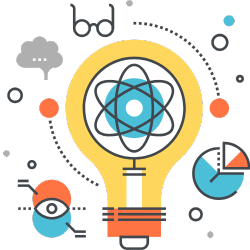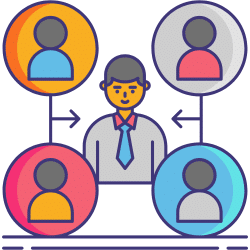With L&D, OD and HR teams returning from their festive break, one topic is more likely than any to be on their list of 2025 priorities: leadership development. It’s relevant to every sector and, in a fast-moving business landscape, confident, effective and skilled management and leadership are more important than ever.

As leadership development experts, we’ve unpacked four trends we expect to be at the forefront of conversations this year, as we work with our learning partners to ensure their leadership development programmes are relevant and impactful.
Inclusive Leadership
Inclusive leadership plays a central role in fostering high-performing and resilient teams. If leaders can create environments where every team member feels truly valued and heard, they unlock discretionary effort and new thinking.

Addressing the unconscious biases we all have remains a fundamental component of this trend. Leadership development programmes often support learners with the knowledge and skill to assess and mitigate their unconscious biases, enabling them to make objective decisions, even when acting quickly and decisively.
With hybrid and remote work now a mainstay, inclusive leadership also means ensuring that all voices are heard, wherever they are coming from. This also goes beyond communication; leaders must provide team members with meaningful work that provides clear opportunity to contribute to organisational goals, creating a shared sense of purpose and belonging
Leading Innovation
Innovation remains a cornerstone of competitive advantage, and leaders play a pivotal role in nurturing it within their teams. This involves creating psychologically safe spaces where team members feel encouraged to think outside the box, propose unconventional solutions, and challenge entrenched ways of thinking.

Continuous improvement is a staple in successful organisations and innovative thinking links closely to these efforts. Leaders must be able to balance the demands of operational efficiency with the need for long-term experimentation and growth. Their challenge is clear: inspire innovation even during high-pressure periods, fostering a culture where creative thinking is seen as integral to success.
360° Feedback & Self-Reflection

In 2024, we saw a rise in organisations incorporating ‘360° Feedback’ tools into their leadership development programmes and expect this to continue in 2025. These exercises see leaders receive a report informed by anonymous feedback from a wide range of colleagues. Not only can these reports highlight particular areas for the leadership development programme to focus on (as well as areas of strength, where less training is needed), they encourage learners to reflect on how their actions and behaviour impact everyone around them, including peers, reports and their own more senior leaders.
This focus on self-awareness is part of a broader trend, framing it as an essential leadership trait. By understanding their strengths and blind spots, leaders can foster stronger relationships, make better decisions and adapt their approaches to diverse team needs. Leadership development programmes increasingly integrate self-reflection as a key competency, enabling leaders to turn insights from feedback into meaningful growth.
Data-Driven Decision Making
Organisations are becoming increasingly ‘data-rich’ and the ability to identify actionable insights from this information rests heavily on leaders. From forecasting to improving operational efficiency, data-driven decision-making enables leaders to align strategy with evidence.
At the heart of this trend is data literacy; leaders must be able to connect data insights to real-world outcomes, communicating findings in ways that drive action and resonate with diverse stakeholders. This may include using tools for visualisation, storytelling, and contextual analysis, possibly whilst utilising AI where possible.
‘Data-rich’ is becoming a desirable corporate culture, where critical thinking and evidence-based strategies become the norm. As organisations continue to digitise and embrace analytics, leaders with high data literacy will be instrumental in turning information into innovation and growth.
The leadership development trends for 2025 emphasise adaptability, inclusivity, and forward-thinking. By including some or all of the areas above into an engaging learning programme for managers and leaders, you can equip them to thrive in an ever-changing business landscape. These trends aren’t just about responding to the present; they’re about preparing leaders to shape the future.
To arrange an informal, exploratory chat about your leadership development requirements, click here to send us an email or here to fill out an enquiry form on the Talk to Us page.